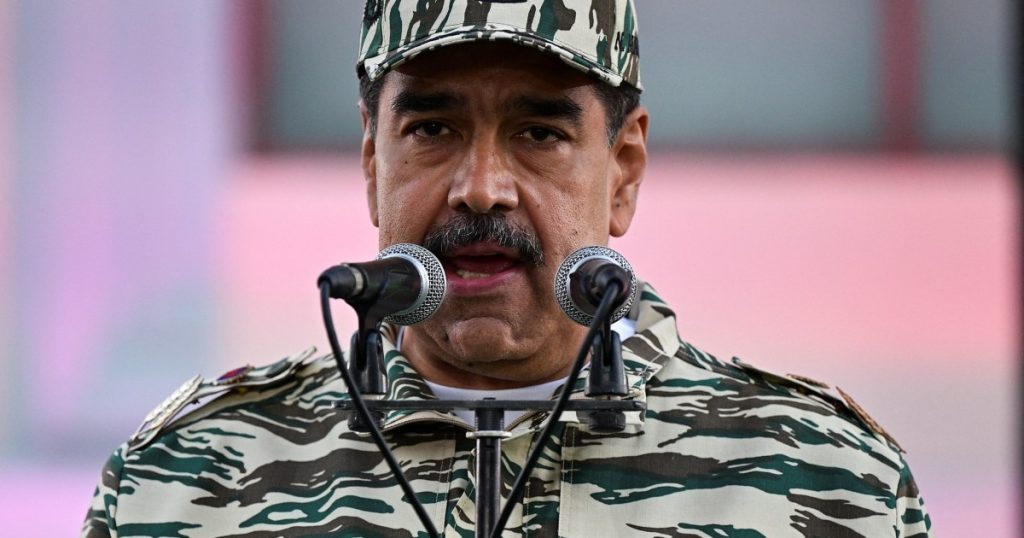Paragraph 1: The Alleged Plot and Arrests
Venezuelan President Nicolas Maduro announced the arrest of a group of individuals he described as foreign "mercenaries" allegedly plotting to disrupt his inauguration for a third term. Maduro claimed the group, which reportedly included Colombian and US citizens, aimed to carry out "terrorist acts" ahead of the ceremony scheduled for January 10th. He identified the detainees as two Colombian "hitmen," three "mercenaries" from the war in Ukraine, and two US citizens whom he characterized as "very high level." Details regarding the identities of the individuals, the nature of the alleged plot, and the location of the arrests were not provided by Maduro, who vowed that the detainees would soon confess. He also declared a widespread deployment of police and military forces across the country in response to the alleged threat.
Paragraph 2: Maduro’s Claims and Past Accusations
Maduro’s declaration came during a televised address from the Miraflores presidential palace, where he further asserted that a total of 125 foreign mercenaries from 25 countries had been apprehended for allegedly engaging in terrorism within Venezuela. This is not the first time Maduro has leveled accusations of foreign-backed plots against his government. His tenure has been marked by repeated claims, often lacking concrete evidence, of US-led conspiracies to overthrow him. These accusations have become a recurring theme in his rhetoric, contributing to the strained relationship between Venezuela and the United States.
Paragraph 3: International Response and Recent Prisoner Exchange
Requests for comment from both the US Department of State and Colombia’s Ministry of Foreign Affairs were not immediately answered following Maduro’s announcement. The alleged plot comes on the heels of a recent prisoner exchange between the US and Venezuela in late 2023. The exchange saw the release of dozens of prisoners, including 10 Americans, held in Venezuela and the release of Colombian businessman Alex Saab, a close ally of Maduro, from US custody. This exchange hinted at a potential thaw in the tense relations between the two countries, but the recent allegations threaten to reignite tensions.
Paragraph 4: Meeting with Opposition Leader and Abduction Report
The timing of the arrests coincided with a meeting between US President Joe Biden and exiled Venezuelan opposition candidate Edmundo Gonzalez Urrutia. During the meeting, Biden reiterated his support for a "peaceful transfer back to democratic rule" in Venezuela and cautioned against further repression within the country. Gonzalez Urrutia, who has been recognized as the legitimate president-elect by several governments in the region, including the United States, is currently engaging in international diplomacy to bolster his support. Adding to the complexity of the situation, reports emerged of the abduction of Gonzalez Urrutia’s son-in-law in Caracas shortly before the arrests were announced, further escalating the political tension.
Paragraph 5: Disputed Election and Opposition Protests
The backdrop of these events is the contested presidential election held in July of the previous year. Washington and several of Venezuela’s democratic neighbors contend that Gonzalez Urrutia won the election decisively, alleging that the official results were manipulated in Maduro’s favor. The opposition has called for mass protests on January 9th, urging "millions" of Venezuelans to demonstrate against Maduro’s continued rule and prevent his official swearing-in. This call to action underscores the deep political divisions within Venezuela and the ongoing struggle for power between the Maduro government and the opposition movement.
Paragraph 6: Maduro’s Long Grip on Power
Maduro, who succeeded Hugo Chavez after his death in 2013, has effectively held power for over a decade, continuing the socialist policies of his predecessor. Together, Chavez and Maduro have governed Venezuela for the past quarter-century, weathering numerous challenges to their authority. They have navigated international pressure, domestic unrest, and economic crises, maintaining their grip on power through a combination of populist appeals, disputed elections, and the unwavering support of the military, police, and paramilitary groups. The recent events highlight the ongoing political instability and the challenges facing the Venezuelan people as the power struggle between the government and the opposition continues.

